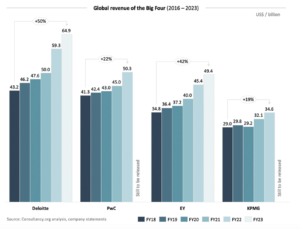The fake outrage over fake reparations
Grievance politics are fanning non-existent flames to outrage the base into voting
No, California is not sending $1.2 million in reparation payments.
Reading the Fox News headline, you’d assume California was paying reparations: “California reparations panel approves payments of up to $1.2 million to every Black resident” the headline reads.
The reality is far less galvanizing: 5 people on a panel of 9 made a recommendation. That’s it. That’s the entire story. There’s no legislation or votes or payments.
Still, the conservative mediasphere took this headline and used it to outrage the republican base, proving their worst suspicions about the liberal haven of California were true. In this made up reality, Black people have given extra resources over whites, which contravening principles of equality and equal treatment. At the same time, the targets of this made up reality are victims of collective blame, where they are all the designated race held responsible for past injustices. This also triggers resentment as different groups vie for limited financial and material allocations. Additionally, focusing solely on reparations for one racial group leads causes Fox’s audience members to have the perception of being overlooked, invalidated, and undervalued.
The republican party uses headlines like this to fire up their base. With no favorable ideas, and with the inability to win popular elections, grievance politics, rather than problem solving, are now at the heart of Republican Party
Grievance politics, also known as resentment politics, refers to a political approach that capitalizes on and amplifies feelings of resentment, anger, or grievance among certain groups of people. It involves leveraging perceived grievances or injustices to rally support and maintain political power.
In resentment politics, leaders or political movements often identify specific targets or scapegoats to blame for the grievances felt by their supporters. These targets can include individuals, groups, or institutions that are seen as responsible for perceived societal problems or challenges. By highlighting these targets, politicians aim to channel and intensify the resentment and anger felt by their followers, creating a sense of solidarity and mobilizing them around a common cause.
This political strategy often involves framing issues in a way that resonates with the grievances of their supporters, emphasizing a sense of victimhood and the need for retribution or change. Resentment politics can be fueled by a variety of factors, such as economic disparities, cultural shifts, perceived threats to identity or values, or historical grievances.
While resentment politics can be an effective tool for mobilizing republians, it can also contribute to social polarization, division, and the erosion of trust in institutions. Critics argue that this approach may prioritize emotional appeals over rational discourse, leading to the amplification of social tensions and the neglect of collaborative problem-solving.
To wit, the entire made-up controversy of reparations comes from Fox News, the entertainment network that argues that no reasonable human would believe their content. According to Fox News lawyers, “the “‘general tenor’ of the show should then inform a viewer that [Carlson] is not ‘stating actual facts’ about the topics he discusses and is instead engaging in ‘exaggeration’ and ‘non-literal commentary.’ “
Just read U.S. District Judge Mary Kay Vyskocil’s opinion. She wrote: “Fox persuasively argues, that given Mr. Carlson’s reputation, any reasonable viewer arrives with an appropriate amount of skepticism’ about the statement he makes.”





